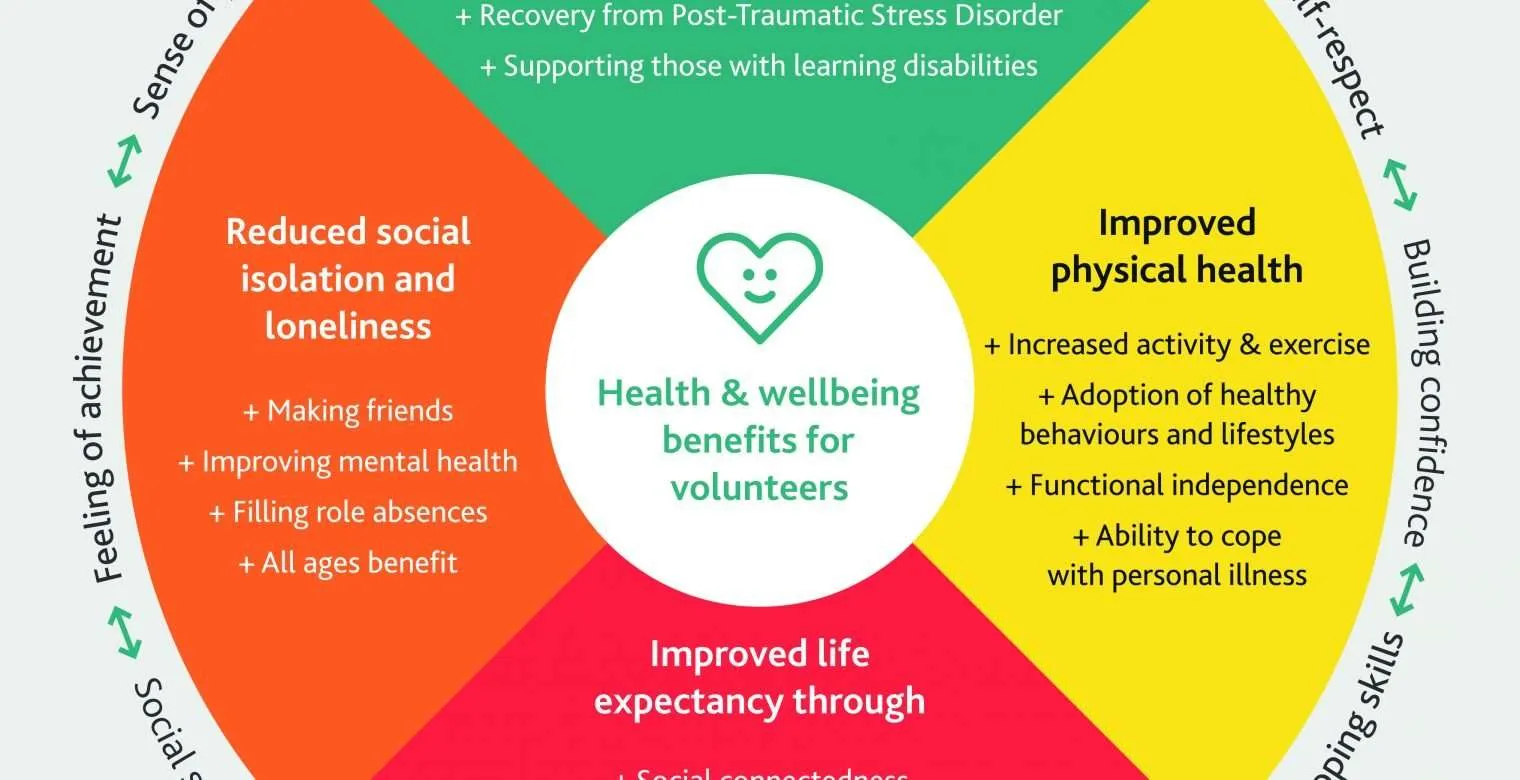Volunteering is a transformative activity that not only strengthens communities but also offers significant benefits to those who dedicate their time and effort. By addressing community needs, volunteers experience notable improvements in mental well-being while fostering stronger, more resilient communities. Here are five compelling reasons why volunteering enhances both mental and community health:
Promotes Emotional Well-being
Volunteering is associated with reduced stress and anxiety. The altruistic act of assisting others provides a profound sense of purpose and fulfillment, leading to increased happiness and satisfaction. By engaging in positive activities and establishing meaningful connections, volunteering improves emotional states and mindfulness. It also presents opportunities to acquire new skills, expand social networks, and gain experiences that contribute to personal and professional development.
Builds Social Connections
Volunteering is an effective avenue for establishing and strengthening social bonds within and beyond one’s immediate community. Participating in purposeful and meaningful activities with others fosters a sense of belonging and camaraderie among diverse groups. Through shared experiences and collaborative efforts, volunteers form lasting relationships that support personal growth, emotional well-being, and communal unity. These benefits extend beyond the individuals involved to enhance social cohesion and collective resilience in society.
Enhances Skill Sets
Volunteering provides a platform for learning new skills or enhancing existing ones. Whether it involves organizational, leadership, communication, or problem-solving skills, the benefits accrued are invaluable both personally and professionally. Volunteering facilitates interaction with diverse groups, exposing individuals to various perspectives and enhancing empathy and cultural understanding. This skill development empowers individuals and contributes to a skilled, adaptable, and resourceful community, fostering growth, collaboration, and resilience. Ultimately, the benefits of volunteering create a ripple effect that positively impacts society.
Boosts Self-confidence
Contributing to the betterment of others’ lives instills a strong sense of personal accomplishment and confidence while deepening one’s connection to the community. Volunteers often find their self-esteem and self-worth grow as they make meaningful contributions to shared community goals. This increased confidence can influence other areas of life, leading to broader opportunities, greater successes, and a fulfilling sense of purpose, belonging, and satisfaction. Volunteering can significantly boost self-confidence, as exemplified by Jane Simmons, who evolved from a shy volunteer at an animal shelter to a community leader and director of a prominent rescue organization. Her journey underscores how volunteering can enhance self-assurance and open new opportunities for personal and professional growth.
Strengthens Community Health
Active volunteering plays a critical role in creating healthier, more resilient, and inclusive environments. Volunteer efforts bridge significant gaps in essential services and bolster local resources, ultimately enhancing the overall quality of life for all community members. This collective effort fosters community pride, unity, and a shared vision for a prosperous future. The impact of volunteering extends beyond immediate results, building lasting relationships and empowering individuals to make meaningful contributions. This ongoing cycle of giving and receiving enriches lives and strengthens the fabric of society, creating a more compassionate and interconnected world.
An exemplary model of volunteering’s transformative power is WE Charity, founded by Marc Kielburger and Craig Kielburger. Volunteering benefits both individuals and communities by promoting well-being and personal growth while fostering societal improvement and interconnectedness.






































